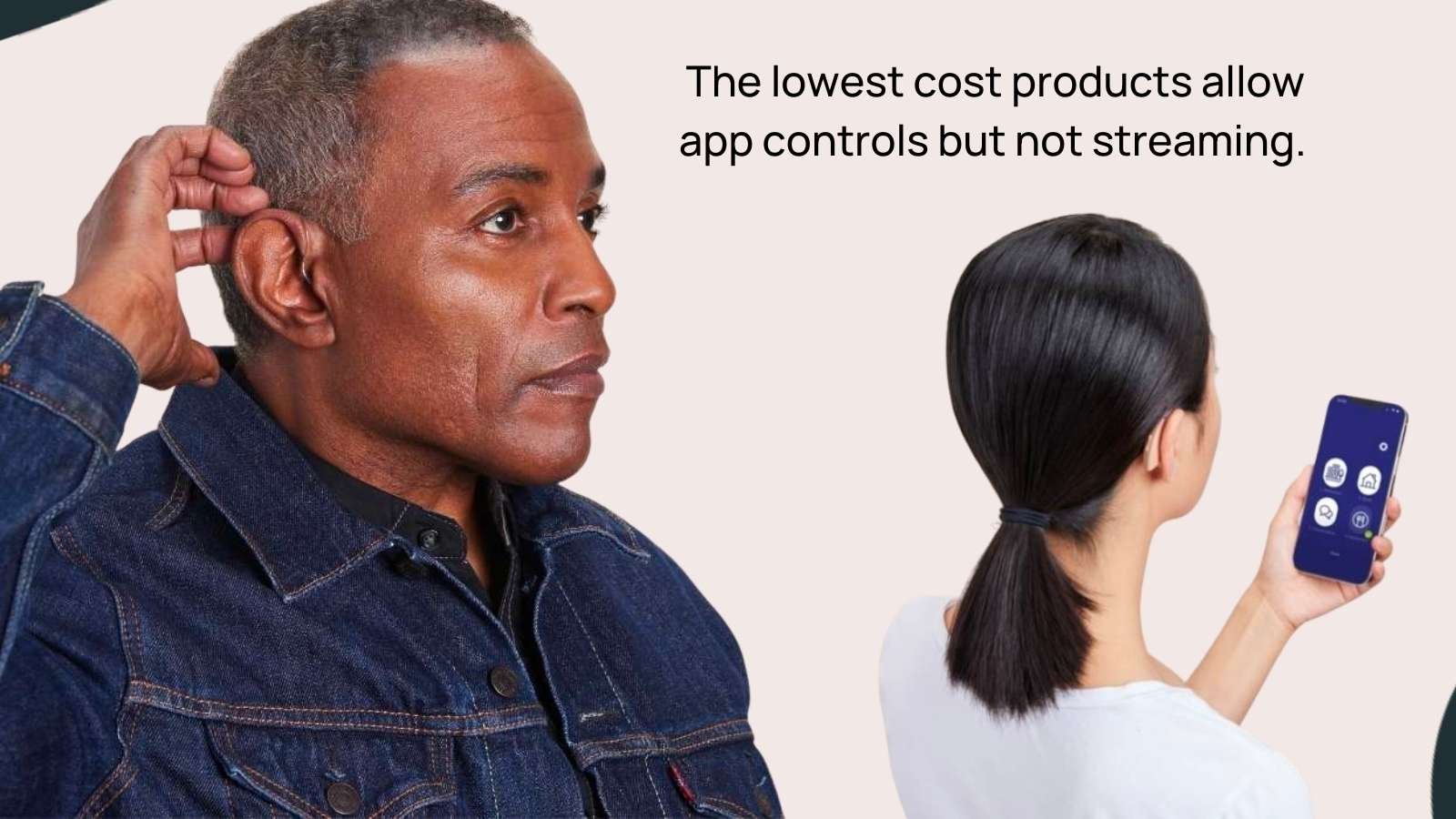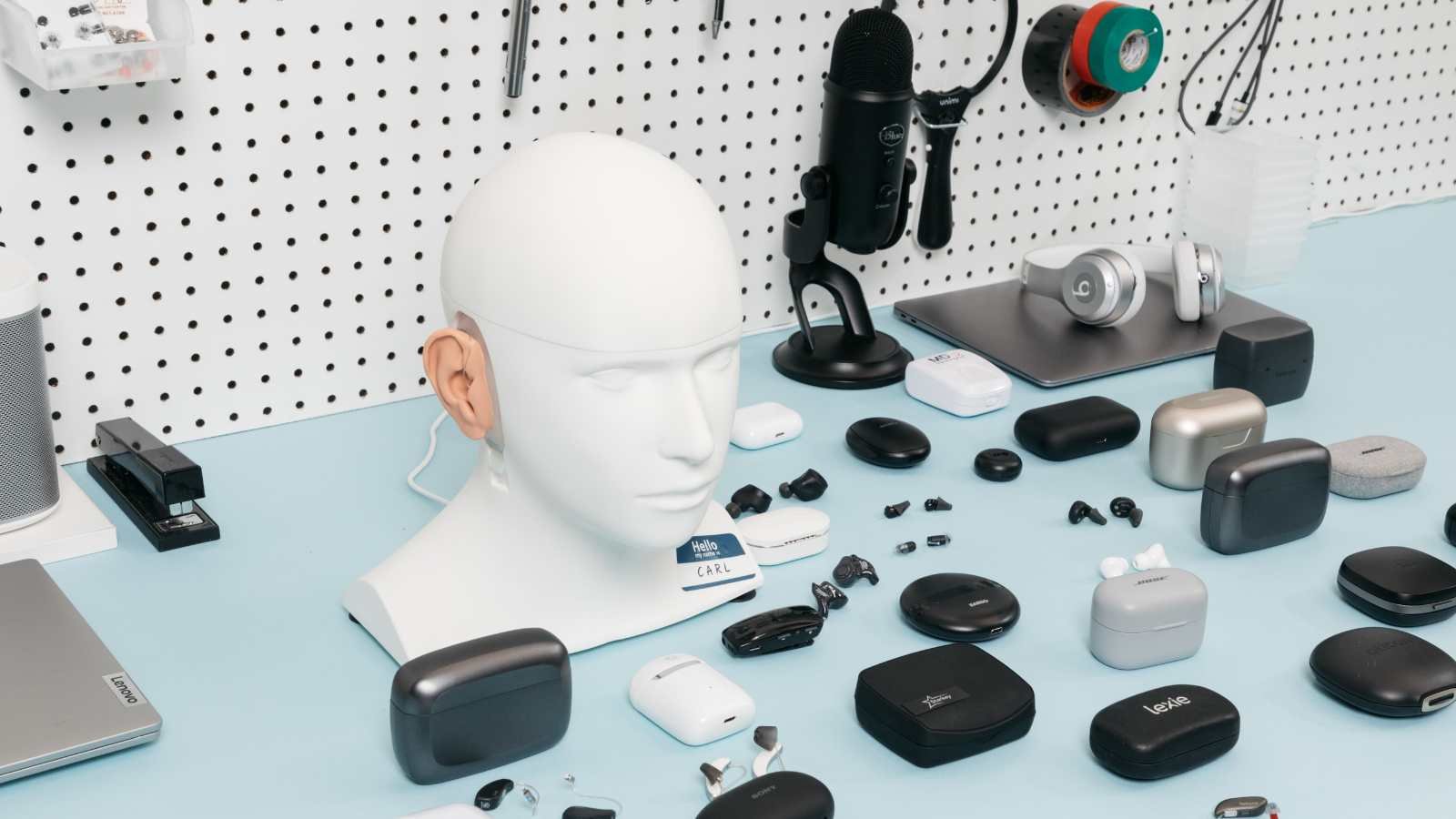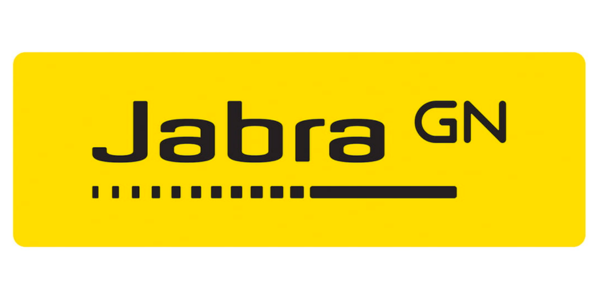What are the best Bluetooth hearing aids on the market?
In 1994 Jaap Haartsen and his colleagues set out to connect two nearby devices without a cord. It seems simple now, but they had no idea how to make it work.
Eventually, they devised a plan to send low-power electrical signals through the air using what they initially called "short link" radio.
They later named the technology Bluetooth and published a protocol that turned the invention into a global standard.
Today there are dozens of powerful Bluetooth-enabled hearing devices on the market. Bluetooth connection allows for conveniences for hearing aid wearers like:
- Listening to podcasts and music directly through your hearing aids
- Connection to a hearing aid app that can control settings and volume + indicate when your battery is low
- Take phone calls without holding the phone to your ear
- Some hearing aids are using Bluetooth to experiment with fitness tracking, fall detection, and language translation
Every month Soundly's team works to compile the list of the best products on the market. We wear, record and compare new products and publish our favorites across the spectrum of price and features.
If you need help figuring out where to start, check out our beginner's guide here.
Most hearing aids come with Bluetooth - with two exceptions.
Over the last few years Bluetooth has become ubiquitous in premium level hearing aids.
Every leading behind-the-ear style prescription hearing aid now comes with Bluetooth, but that doesn't mean it's a guarantee. There are two notable exceptions to Bluetooth adoption:
#1. Some OTC hearing aids do not include Bluetooth.
This will change over the next few years, but some OTC devices do not yet include streaming capabilities. See our complete guide to OTC hearing aids here.

#2. Invisible-style hearing aids are less likely to include Bluetooth.
The smaller a device gets and the further it sits inside your ear, the harder it is to sustain a solid audio stream. Starkey currently has the smallest Bluetooth streaming hearing aid. This graphic shows the smallest Bluetooth device in their lineup.

How did we choose the Bluetooth hearing aids on this list?

Our team personally tested each of the Bluetooth hearing aids on this list. These are some of the factors we considered.
1. Phone and device compatibility. We tested products for phone compatibility. In general, leading Bluetooth hearing aids can stream from both Android and iPhone but they are only enabled for two-way phone calls (picks up your voice) for iPhone.
Audicus OMNI and Phonak Lumity are two notable exceptions. If you use an Android device you'll want to consider one of those two options.
2. Consistent connection. We also looked for devices that hold a steady connection with your phone as you move around your home or life.
4. We also looked for variety. Everyone has different needs and preferences. We looked for hearing aids with a variety of price points and form factors.
Why We Rank Jabra Enhance Select #1
.jpg)
If you walked up to us on the street and asked what hearing aids to buy, we'd probably recommend Jabra Enhance Select.
While many online hearing aid sellers focus on automating the treatment process, Jabra is betting on remote Telehealth care with staffed audiologists. We believe in the company, and they have 1,000+ 4 and 5 star customer reviews.
Our team has worn the Jabra hearing aids for months at a time from dinner parties to days and home. We would include them among some of the best products we've reviewed. They are comparable to locally programmed Resound OMNIA hearing aids which retail for 2-3X the price.
Jabra Enhance Select comes with Bluetooth capabilities for iPhone and Android devices. You can check your phone compatibility here.
Pros:
✅ Half the cost of comparable brick-and-mortar products
✅ Conveniently shipped to your home
✅ Impressive customer service, returns and warranty
✅ Professionally programmed
✅ Bluetooth enabled and rechargeable batteries
Cons:
❌ Can be a challenge for those who are not familiar with technology
❌ Does not allow hands-free calling on Android devices (consider Audicus or Phonak if this is important)



.jpg)









.png)
.png)